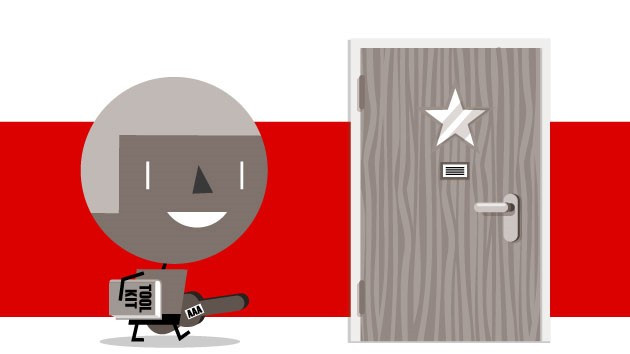Contents
1. What is Coaching?
2. Finding a Coach
3. What is Mentoring?
4. Finding a Mentor
5. Top Tips

An introduction to Coaching and Mentoring
Coaching and Mentoring are powerful tools that support people to learn, develop, reflect and challenge themselves. Here at Sound and Music Coaching and Mentoring have enabled us to work at great depth and, we hope, with deep trust with composers at various stages in their careers on issues that are central to their work and professional practice.
If you are about to enter into a Coaching or Mentoring relationship, or are wondering if either or both of these approaches might support your professional development, then this toolkit is for you.
1. What is Coaching?
Most of us probably have images of someone in a tracksuit with a whistle when we think of a Coach. In our context, a Coach is a trained person who will spend time listening to you, asking insightful questions and creating the right atmosphere for you to reflect, plan, gain insight and work things out.
Here is a list of some of the things that good Coaches do and avoid:
A Coach Will
- Listen well
- Keep confidentiality
- Be impartial
- Be supportive
- Challenge you
- Encourage you to look to future strategies and remain ‘solution focussed’
- Have received specialist training in Coaching
A Coach Won't
- Give advice, particularly of the unsolicited ‘if I were you’ variety
- Share the content of your work together without your permission
- Attempt to fix your problems for you, taking away your control
- Focus your work together very heavily on the past, as a counsellor or therapist might
- Act as teacher, trainer or expert
- Work from anyone’s agenda apart from yours
People engage with Coaching at all stages of their careers. Coaching is a powerful tool that gives you the space to reflect on yourself, where you are going, the barriers in your way and potential strategies for overcoming those barriers.
Composers that Sound and Music has worked with have used their Coaching in a huge variety of ways; from practical things such as preparing for a workshop, working best with collaborators and getting the most out of networking opportunities to higher level challenges such as re-engaging with enjoyment in their work, overcoming negative assumptions about their music and its reception and striking a healthy work/life balance.
2. Finding a Coach
Word of mouth is a very good place to start. Do you know anyone who has had Coaching? Ask them who they worked with and if they were any good. Do you know of any organisations who work with Coaches? Ask them who they might recommend.
Within the arts world, Relational Dynamics 1st is a well-recognised trainer of Coaches and maintains a growing list of Coaches working within the arts.
Things to Expect
Coaching is a professional service and, unless it is being provided for you as part of a professional development programme that you are engaged in, you will be charged a fee by your Coach.
- When approaching potential Coaches it is standard that you can have a chat with them before starting work together. This is an opportunity to ask them about their experience and training, their fees, where and when you might meet to work together and what you’d like to get out of your Coaching.
- When you start working with a Coach you should expect them to make a contract with you that explains the boundaries of confidentiality within your work with them.
- Most professional Coaches receive supervision as part of their work. Supervision is bounded by confidentiality and you should expect your Coach to discuss all of their Clients with their Supervisor.
- Your Coach will also reserve the right to break confidentiality with you if they feel that you are a danger to yourself or others.
It is best to agree the number of sessions you and your Coach will achieve together. Some Coaches contract this at the beginning of their work with Clients, others like to get started on the work and then collaborate with Clients to agree the number of sessions.
3. What is Mentoring?
A Mentor is an advisor. Receiving mentorship is an opportunity to benefit from the experiences of an expert in your field and to hear from someone who has walked the path before. Your Mentor will notice areas of your career that you could develop and share skills that you could benefit from. They can open up new networks and contacts for you and make introductions. Like a Coach, a mentor will ask questions and encourage, they will seek to support your confidence, but unlike a Coach they rely on having similar experiences to you and they will give you targeted advice.
Nancy Kline’s words above remind us that mentoring is for the Mentee not the Mentor. A good Mentor needs to listen very well before they advise. A good Mentor will make sure that you, the Mentee, are in control and that you are getting what you need out of the work.
It is very important to have clear aims when entering a mentoring relationship. Mentors can be hugely experienced and they can work at their best when they have a clear idea of what you want to get out of the work together. Good mentorship walks a careful line between advising and listening. Your good Mentor will be very interested in you and your work, genuinely wanting to find out more. Good Mentorship is active not passive, both parties work hard and the situation where the mentor simply ‘talks at’ the Mentee should be avoided.
“Mentoring is for the mentee. Most of all for the mind of the mentee. I think that Mentoring needs to focus on and develop the mentee’s finest independent thinking about their work, their career, their life, their dreams. The Mentor’s perspective is an important ingredient in this special relationship. But it feeds. It is not the feast.”
4. Finding a Mentor
Identifying a suitable Mentor can take time and it requires reflection. Here are some qualities you might look for when considering your choice of Mentor:
- Someone who inspires you
- Someone who is where you would like to be in 10 years’ time
- Someone who has specific skills, experience and networks that would be useful to you
- Someone who can help you focus on the technical aspects of your craft
Mentors are typically paid for their time and unless you are receiving mentorship through engagement with a professional development programme that you are on you can expect to pay your Mentor a fee. It pays to think clearly about what you want to get from your Mentorship, this will help you in your choice of Mentor.
Once you have approached someone it is advisable to have a set up session where you will share with the Mentor what you want to get out of your work together. You will agree the number of sessions, where and when the sessions will take place. Unlike Coaches, Mentors may not have standard contracts that they issue to people they are working with, so it’s advisable to agree these ways of working up front.
5. Top tips
Getting The Most Out Of The Work
The chances of your Mentoring and Coaching being successful are vastly improved if there is agreement on the following things between you and the Mentor/Coach:
Goals
Be clear about what you want to gain from the work and the progress you hope to make. The more specifically your goals are fleshed out the better. These goals may change through the process of the work, but it’s important that you and the Mentor/Coach have agreement about what they are.
Tasks
These are the things that need to be done to reach your goals, this includes the specific actions that you will take following your sessions and any actions that the Mentor will take on your behalf. Large goals are often broken down into stages and these stages usually require actions that take place outside of the sessions.
Bonds
It is important to agree the nature of the relationship between you and your Mentor. What is confidential and what is more open? Do you agree to have a very formal professional relationship or do you agree to be more informal (becoming friends on social media for example). If your Mentor expects to work in quite a hierarchical way (a good teacher to student model for example) are you happy with that? There is no right or wrong answer here, the important thing is that there is shared understanding. If you are working with a Coach you can expect them to work towards creating a specific relationship bounded by confidentiality, impartiality and positive regard towards you.
Where To Meet
Coaching and Mentoring both require good listening and thinking. You might want to find some peace and quiet. Try to think of somewhere where you can be relaxed and undisturbed.
Reviewing
Reviewing is a process whereby you and your Coach or Mentor will dedicate time to reflecting on your work together. It is an opportunity for you to say what you would like more of, to talk about what is working well for you and anything you would like to be different. It helps your work together to stay on track.
If you are not happy with how your Coaching or Mentoring is progressing the first thing to do is to discuss this with your Mentor or Coach. A Review session as described above is the most obvious place to do this. Sometimes the strongest working relationships can emerge through these discussions, as assumptions can be cleared up and more effective strategies for working together agreed on.
Endings
Endings are important. Good Coaching and Mentoring relationships can produce strong bonds and high regard between the participants. These relationships are affirming for all parties and this can make endings significant. As the Client you should feel informed of when your final session will be. A nice way to end is for both parties to provide affirmation for each other at the end of the final session. This is simply taking time to share positive things that they have each noticed about the other person during their time working together.
Your Suggestions
If you can't find something that you would like to see here, or if you have a useful link or idea to contribute, please let us know by visiting our Contact Us page or sending your suggestions and comments to info@soundandmusic.org.
You can also get involved by tweeting us: @soundandmusic.
See also

** OLD TOOLKIT **
Designed to give composers and sound artists information and advice on how to build and sustain a career in the music industry, this toolkit has valuable insights for composers at any stage in their career.

** OLD TOOLKIT **
A set of links and resources specifically aimed at young people starting on their journey to composing.

